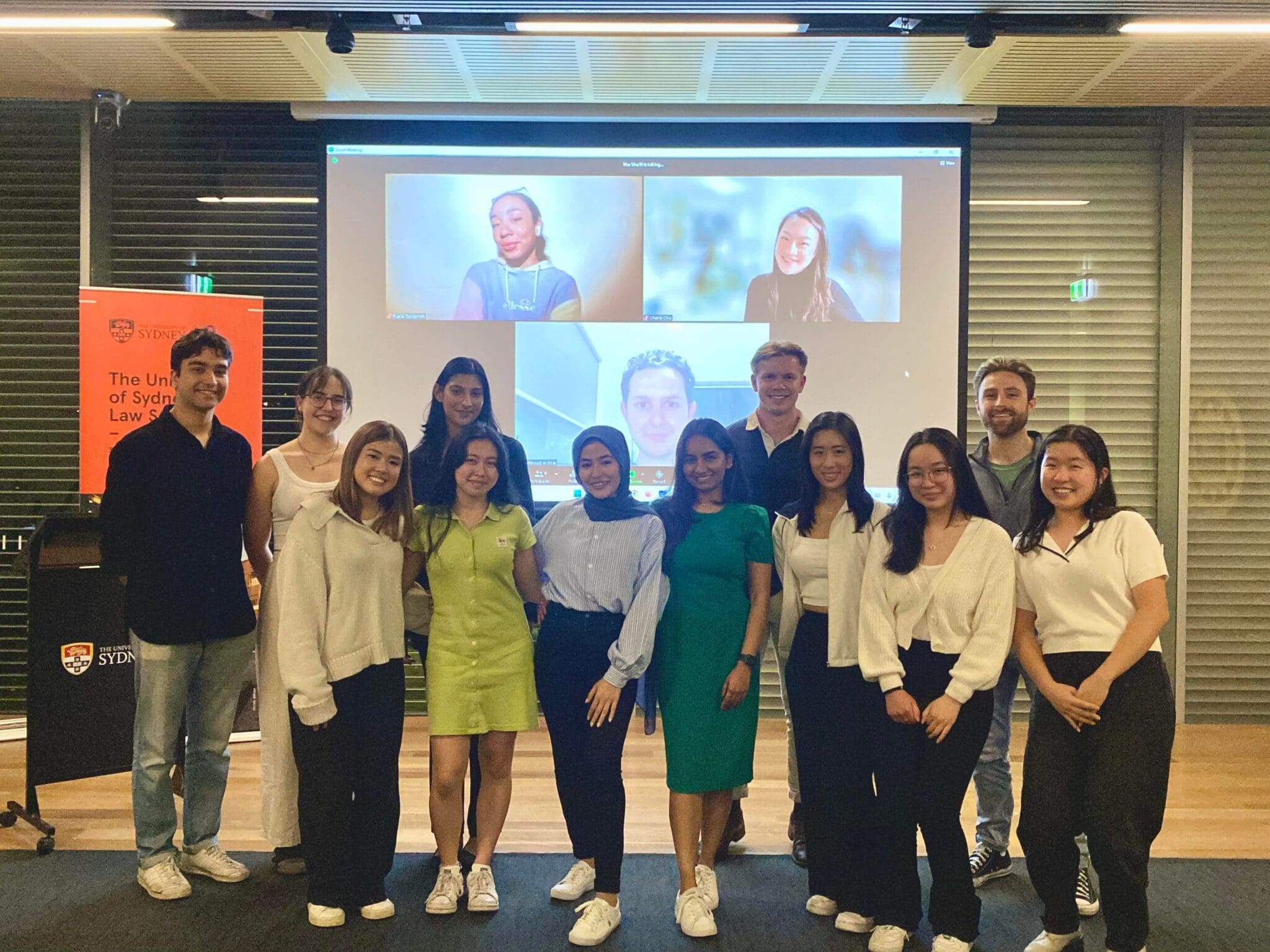The incoming Sydney University Law Society (SULS) Executive will be led in 2023 by President-elect Naz Sharifi (LLBV) following the withdrawal of opponents Eden McSheffrey (LLBIV), Vaughan Marega (JDI) and Michael Kallidis (JDII). Marega took the Vice-President (Careers) position and McSheffrey withdrew to formally support the ticket’s nomination along with members of the incumbent executive, including Ben Hines, Maja Vasic, Michelle Chim, Nishta Gupta and Harriet Walker.
Sharifi’s Expression of Interest highlighted cultural inclusivity and a social justice focus as her priorities for the Society in 2023. Sharifi also stressed the need for advocacy against faculty changes happening without student consultations, particularly with reference to examinations and the PASS program, which is due to be discontinued in its current form next year.
Familiar faces on the executive include Julia Lim (LLBIV), the current Marketing Director who will be joining next year’s executives as Secretary, and competition’s heavyweight Arasa Hardie (LLBIII). Mahmoud Al Rifai (LLBIV) also brings with him experience from past years, having previously served with Hardie on the 2021 executive under former President Wendy Hu, in the position of Ethnocultural Officer.
The 2023 SULS Executive, confirmed by Electoral Officer Jacob Lerner this afternoon, will consist of the following students:
President: Naz Sharifi
Vice President (Education): Arasa Hardie
Vice President (Careers): Vaughan Marega
Vice President (Social Justice): Charmaine Lui
Secretary: Julia Lim
Treasurer: Mahmoud Al Rifai
Sponsorship Director: Vivien Lu
Social Directors: Niveditha Sethumadhavan and Priya Mehra
Competition Directors: Christine Aung and Danielle Tweedale
Sports Director: Nick Leavenworth
Campus Director: Kaela Goldsmith
Publications Director: Charis Chiu
International Student Officer: Lea Nguyen
Other positions, namely, the autonomous portfolios: Queer, Ethnocultural, First Nations, Disabilities, Women’s, alongside the Equity Officer, Design and Marketing Directors will be appointed at the incoming executive’s discretion.
This marks the second year in a row in which the SULS presidency will be held by someone with student politics experience, with former USU Honorary Treasurer Ben Hines presiding over the Society this year. Sharifi currently serves as a University of Sydney Union (USU) Board Director, having been elected earlier this year, potentially representing the end of an apolitical period for the society. Sharifi will also not be the only sitting USU Board Director at the helm of a major society, with fellow Board Director Alexander Poirier being elected as President of the Conservatorium Students’ Association at their AGM last week.
Sharifi did not rule out running in USU Executive elections next year when speaking to Honi.
“I’m not opposed to it in principle. The USU role is one of predominantly governance and driving the vision of the organisation, which SULS President also does, however society presidents are more operationally involved and have a different set of responsibilities and priorities.”
The entrance of USU Directors into society races has arguably had a chilling effect on contested elections, where candidates withdraw or negotiate as they feel they cannot go up against electorally tested and experienced opponents.
This has recently been the case for SULS, one of the few societies to elect their executive by a general election and not within an AGM. The voting period ordinarily takes place late in the semester toward STUVAC, where campaigning could be considered particularly difficult.
Additionally, the Presidential EOI system means no alternative tickets can be formed if Presidential nominees withdraw, leading to a situation where candidates strategically nominate to secure roles in one another’s executives.
Asked to comment on the lack of contestation, Sharifi told Honi that uncontested elections are not inherently a problem but could risk reducing engagement with the society.
“Rather than being an issue of the quality of the executive, as has been rightly noted, the issue is more so one of the lack of input the wider membership has on who takes up these roles that represent them, and I do agree this is of utmost importance,” Sharifi said.
She added that a key reason for the phenomenon could lie in barriers to entry in contesting elections: “It really does look to be an issue of the willingness of candidates to spend the time, effort, and capital on a race that they might lose, particularly given the lingering pain suffered by losing tickets and their members in each of the years with contested elections. SULS seems to suffer from “election fatigue” each time there is an election, particularly given the three-way 2020 election.”
“Reforming to make the electoral process more accessible will be something our executive will be working towards.”





